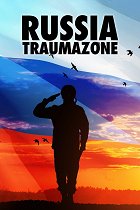Recenziók (1)
Over the course of seven one-hour episodes, Adam Curtis examines the consequences of the collapse of the Soviet Union year by year. This time without extensive off-screen commentary and aptly chosen songs. However, another Curtis trademark is present here, namely shots of awkwardly dancing individuals. The absence of explanatory words and sounds is not a bad thing, as it forces viewers to watch more actively, to search for secondary meanings and to draw their own conclusions. Using well-chosen and even better composed materials from the BBC archive (often apparently unofficial, previously unused materials) and some laconic explanatory captions here and there in the picture, Curtis creates a kaleidoscopic portrait of a nation that first tentatively rejected communism and then lost itself in capitalism and various ideas of what democracy means. He arranges events that his colleagues such as Sergei Loznitsa and Vitaly Mansky had previously dealt with relatively honestly, though not with such a broad scope, in chronological order – Chernobyl, Afghanistan, the attempted coup in August 1991, the attack on parliament two years later, the two wars in Chechnya, Putin’s elevation to the Kremlin. However, he constantly veers away from the major events toward seemingly incidental, often bizarre episodes and the reflections of random passers-by, who are increasingly frustrated by the ongoing developments. Curtis is interested in the relationship between the centre of power and the periphery, between the problems of Moscow and the rural population of Russia and the former Soviet republics. Through ironic juxtaposition (which often occurs within a single shot, so rich in meaning that it really doesn’t need any further commentary), Curtis succeeds in capturing the tragicomedy and absurdity of the post-Soviet reality without resorting to literalism (or rather enriching it with a metaphorical dimension; for example, when the exhumation of a 2,500-year-old corpse found in Siberia conveniently coincides with the renewed worship of Stalin and the unveiling of a statue of Peter the Great). On the one hand, the first McDonald’s in Moscow is opened with great fanfare and the state invests massively in senseless military conflicts, while on the other hand, there are civilians who have nothing to buy (or eat) because of economic reforms, and dejected soldiers sleeping in barracks with a hole in the floor and wondering why and for whom they are fighting. Curtis takes into account the increasingly wide chasm that is forming between corrupt politicians (connected to the oligarchs, who best managed to exploit the possibilities of the free market) and impoverished citizens while the space for constructive dialogue is shrinking and the sense of belonging and collective identity is disintegrating. For a large part of the Russian population, the starting point was either cynicism and total resignation to democracy or a return to the values (and methods of governing) that they associated with lost certainty and security (of course, the joke consists in the fact that Putin was not brought to power by Communism, but rather by strong opposition – backed by oligarchs with connections in the West – to the strengthening Communist Party). ___ Because of its linear structure and adherence to familiar narratives, TraumaZone is not the highlight of Curtis’s filmography (which, in my opinion, remains the more formalistically and intellectually bold and well-thought-out Can’t Get You Out of My Head), but it is still a fascinating audio-visual accomplishment and a valuable, darkly humorous socio-political study of where Russia is today and how it got there. It is also a warning of how easily the rest of the former Eastern Bloc could find itself in the same place.
()
(kevesebbet)
(több)
